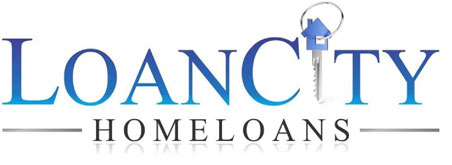Refinance Home Mortgage Loan- Is Refinancing Your Mortgage the Right Move?
Refinance home mortgage loan is a way to restructure your mortgage. Refinancing is an important decision which needs thought and timing. Having a mortgage is one of the largest debts many people inevitably encounter. It spans a long period of time, considering that the average home loan exists for around 15-30 years.  As a homeowner, you need to make smart decisions when it comes to valuable investments such as buying a house. Minimizing debt while maximizing equity is essential. This is where refinancing becomes important. Having a mortgage is one of the largest debts many people inevitably encounter. It spans a long period of time, considering that the average home loan exists for around 15-30 years. As a homeowner, you need to make smart decisions when it comes to valuable investments such as buying a house. Minimizing debt while maximizing equity is essential. This is where refinancing becomes important.
As a homeowner, you need to make smart decisions when it comes to valuable investments such as buying a house. Minimizing debt while maximizing equity is essential. This is where refinancing becomes important. Having a mortgage is one of the largest debts many people inevitably encounter. It spans a long period of time, considering that the average home loan exists for around 15-30 years. As a homeowner, you need to make smart decisions when it comes to valuable investments such as buying a house. Minimizing debt while maximizing equity is essential. This is where refinancing becomes important.
What exactly is refinancing? In a nutshell, it simply refers to acquiring a new mortgage to replace your old loan. There are various reasons and benefits to this such as lowering your interest rate, reducing monthly payments, or taking cash out of your property for other expenditure like payment for college, travel, house remodeling projects, etc.
The Mortgage Bankers Association reveals that on average, Americans tend to refinance every four years since it greatly helps in making significant savings. Here are the major reasons for refinancing:
Lower Your Interest Rate This is probably the most common reason why most homeowners choose to refinance. You’ll get a lower interest rate which leads to considerable savings in monthly mortgage payments. For instance, if you have a $225,000 mortgage with a 30-year fixed rate of 5.5%, the monthly mortgage payment would be around $1,277. If you refinance your mortgage after four years, and lowed your interest rate to 4%, you’ll have a monthly mortgage payment of $1,074 which translates to a savings of $203 each month.
Changing Into a Different Type of Mortgage Refinancing is a good option when you want to change to a different mortgage type to take advantage of certain benefits. For example, if the rates offered by your adjustable rate mortgage (ARM) are impending to increase, you may want to change into a fixed-rate mortgage so the interest rate remains the same. This means that your monthly payment will stay consistent. On the other hand, if you want to take advantage of lower rates offered by an ARM, then you could switch into this type of mortgage by refinancing.
Building Home Equity Faster When you refinance from a 30-year fixed to a 20-year fixed, it takes a lesser period to pay off your property, and the long-term interest payments can be immensely reduced. This is a viable option especially when your financial standing has improved, and you can afford paying more for your monthly mortgage payments.
Taking Cash Out Drawing equity out of your home, or also known as cash-out refinancing, means you get cash but your principal increases. For example, if your house is worth $600,000, and you owe $400,000 on your loan, then you have $200,000 in equity. Once you refinance your existing mortgage, you get to have $100,000 in the form of cash and acquire a new loan with a lower interest rate hopefully. Your mortgage will then comprise $600,000 home value, $500,000 mortgage and $100,000 in equity.
Is Refinancing the Best Option for You? As this is a critical decision, make sure that refinancing is actually beneficial for you. Here are some good questions to ask yourself before contacting a mortgage lender.
How long do I plan to stay in my home? Refinancing makes sense only if you plan to stay in your home for at least five more years mainly because the process involves closing costs that could possibly outweigh the benefits. Typically, homeowners are able to pay for the refinancing costs and start to gain real savings after five years, hence referring to the five-year mark as the “break-even” point.
Does my existing mortgage have a prepayment penalty? Be sure to find out if your lender charges a prepayment penalty, which is a fee charged to you when you pay off your current loan.
What costs do I have to pay for the new mortgage? Depending on the size of your new loan, your lender may charge you up to $10,000 worth of fees including origination and insurance fees, legal costs, insurance costs, appraisal fees, title search costs, and application fees. The total amount of these fees may consume your potential savings so remember to check if your new interest rate is lower than your present rate.
Will I have lesser tax savings? Upon claiming mortgage interest on your tax return, you will have a lesser mortgage interest to deduct if you refinance to a lower interest rate. Consult with your tax advisor to find out if your total savings will be higher once you refinance.
Can I build equity more quickly? Perhaps you have a better financial standing now, and you can afford to pay higher monthly payments. In this case, it’s greatly possible to make huge savings and to build equity faster. Take a look at this example: A 30-year mortgage of $350,000 with a 4% interest rate would involve monthly payments of around $1,700. On the other hand, a 20-year mortgage of $350,000 with a 3.25% interest rate would result to monthly payments — before taxes — of around $2,000. Between the 20-year and 30-year loans, the interest savings reaches up to $125,000.
Will the features of my Adjustable Rate Mortgage improve? As these products have limits when it comes to the maximum increases on your payments over the course of the loan, setting new and more favorable terms could be a good decision.
Will I have lower monthly payments? When you refinance for a longer term, the interest owed will increase but you’ll most likely reduce your monthly payments.
Can I pull some cash out of my equity? If you have urgent financial needs, refinancing lets you tap your equity to draw out some cash. This is an advantageous option since you can have a lower interest rate compared to using unsecured loans or credit cards. Just make sure that the rate is actually lower than your existing interest rate.
On the whole, refinancing is a useful way for numerous homeowners to save money. Whether this is a good option for you or not depends on various factors mentioned above. Before you take out a new loan, keep in mind to study your situation and goals carefully, understand how the new mortgage will affect your financial situation, and calculate the costs versus the benefits properly. Refinance home mortgage loan is rewarding and lets you achieve your financial goal if you can take this important decision at the right time.


 Twitter
Twitter Email
Email Facebook
Facebook Linkedin
Linkedin Google +
Google +